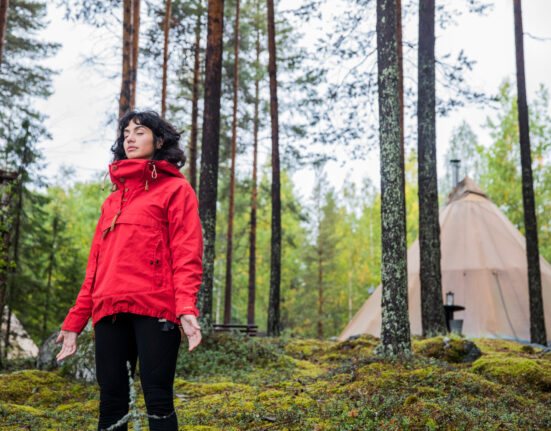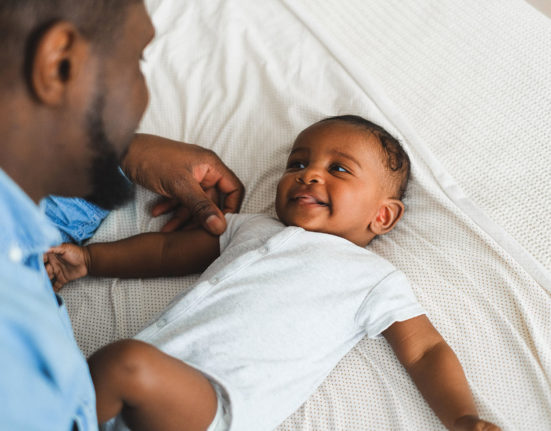Read the articles and find you have questions of your own? Further to our mental health expert Lysanne’s latest article about parents and guilt, a reader sent in a question about their own particular situation. This is what Lysanne answered.

Q. One of the hardest things for me was being away when my mom was terminally ill. I had tremendous guilt and felt helpless being that I lived 5,000 miles away. Due to such high airfare, I couldn’t afford to fly home more than once, so dealing with the uncertainty of whether to go home or wait it out. THEN, feeling guilty for being relieved that I didn’t have to worry about her any more after she was gone. Probably one of the toughest times in my life.
How can one better manage living abroad and dealing with a death of family or friends? It’s hard losing a loved one but then to live so far away seems to make it even more difficult. B.
Dear B.
I am so sorry for your loss. The situation that you describe must have been incredibly hard for you and your family. While it was the difficult but logical consequence of your decision to live abroad, this choice suddenly took an unexpected and much more dramatic and tragic turn. I can only imagine that you experience(d) a bunch of mixed feelings during that time. When you made the decision to move 5,000 miles away you didn’t have an inkling that you would end up in this situation.
I often think there’s a blessing in not knowing what lies ahead of us.
Certainly from my own perspective, had I known what was lying ahead of me, I might well have ended up a scared little housebound birdie never daring to spread my wings even a tiny bit. Had you known would you have still gone abroad? And if not, then what would that have cost you in terms of life experience and growth? The thing is that we do the best we can with the knowledge that we have, and little denial here and there to help us find the courage to fly. There is no right and wrong in this situation, only the tragic sadness that life sometimes throws our way.
You say that a part of you feels guilty about being relieved that the worry is now over, but this only tells me how much you were hurting during the time that your mum was ill. I am sure that if you were given the choice you would have wanted her to live many happy years yet. But given the fact that she was dying, and that it put you, her and others in an unbearably painful place, you wouldn’t be human if you didn’t feel a sense of relief that the pain of that situation is now over. Remember, the people we love and lose to death, only experience that separation once, while we can sometimes create a living hell for ourselves by experiencing it over and over again.
The process of grief
The process of grief is the adjustment of the psyche to the absence of something that was present and is now gone. Death and loss leave an aching hole where once we found emotional, physical, spiritual or mental nourishment. The psyche reacts by ‘looking’ for the missing piece, trying to fill the hole again. I never thought as much about my mum as I did in the months following her death. The psyche was literally looking for her; in the people I met, in kind ladies who could be potential ‘surrogate’ mums (though this seldom works), and in the dark of night when I imagined her ghost might come as say ‘hi’ whereupon I would fervently asked her to spare me that particular joy.
Grief is also about the loss of the imagined future that their loss now causes.
On the way back to France from her father’s funeral in Holland my friend kept repeating to herself, ‘my father is dead, I have no father’, and mentally trying it out in various conversational settings. I think she was spontaneously, and perhaps prematurely, trying to give her psyche a crash course in accepting this new and amended identity. As far as the psyche was concerned, from being a daughter with a dad in Holland, she was now a fatherless daughter. And that adjustment, that recalibration of who we are in the light of the loss that we’ve suffered, is part of the process of grief.
Now doing it away from home
Doing your grieving abroad is different from experiencing it in the physical intimacy of a shared village, town or even country. I think it is fair to say that no one leaves their home country unless they feel a strong sense of independence and a need for freedom. And despite Skype and FB we become used to the lack of our parents’ and friends’ physical presence in our lives. We may love or hate the intensity of visits home (see last week’s piece), but we become used to experiencing the home front in small intensive bursts. While a mother and child from the same town, or country, may have many shared places and activities, we’re already more cut off. That’s both a help and a hinder when it comes to grieving.
The more we’re reminded of the ‘hole’ that’s left behind, the more (and perhaps the quicker) we go through this process of finally accepting it is there, and filling it with memories of the past, rather than expectations of a future.
And this process might be more supported by the fact that others who also mourn this person are in close physical proximity, so that you can be sad and remembering together. But being already quite independent and free from the person who has died, a foreign grieving process can feel more abstract. It can be easy to lose ourselves in the everyday that didn’t really include our loved ones and thus, psychologically, avoid triggering the ache of this inner ‘hole’. We might even feel out of synch with the people back home, avoiding contact because they’re in the midst of their grieving process and you (think) you have moved on.
At my mother’s funeral I felt almost as if I was holding my breath, holding back my emotions until I could safely fall apart back in England, in my own home, in my own environment. And yet, once I was home, I felt so alone and lonely with my grief that I became quite the expert at pretending that I had transcended it altogether and had found rapid inner peace. Thankfully there were wise people on my path who knew better, and who teased the grieving process out of me anyway.
So in a way, just as with many other things, Internationals have to work that little bit harder at grieving effectively. We’re helped by the fact that we already know how to stand on our own two feet, but we’re hindered by the fact that we’re away from the grieving environment as so can find the process more abstract and harder to engage with. Secondly, we may feel regret, or guilt, and suddenly see how the choices we have made, and are making, have great consequences, and this too can be part of a process of adjusting our view of the future. But it is oh so important to separate the pure pain of loss from guilt and regret about not having had a physical presence in their lives in the way we might have had if we’d been at home. They, hopefully, loved us for choosing our own best lives, and would never want their death to compromise that decision.
My cousin, who also lost both her parents, said to me the other day that she has always been so proud and more than a little envious of my foreign adventures. And yet, while I appreciated what she said, I felt that her choices, staying put in the town of her birth, close to her parents, had given her more shared time with her parents than I had. Then, seeing my mother smile knowingly from her cloud, I wouldn’t and couldn’t have wanted it any other way.
Death has a way of stripping away the fluff and making us look at what is real and unavoidable.
Death and loss, in many ways, are all about reminding those of us left behind that we need to embrace life, as much as we can, with as much of ourselves as we can dare to be. And yes, the choices that honour that commitment may require certain sacrifices, from ourselves and even from others. But rather than letting the resulting feelings of guilt stand in the way of making the most of the relationships that are still there for us to enjoy, let it be the spur that pushes us to cherish and care for the people we love, in the best way we can, within the bounds of our choices. And then accept that when the time comes, it is what it is.
Copyright 2013: Lysanne Sizoo
Lysanne Sizoo
DISCLAIMER
These articles are a composite of my personal, my colleagues’ and
clients’ experiences in order to protect recognition. All therapeutic
meetings are Turning Point are confidential, and specific content would
never be shared in a public forum.
If you have any specific problem that you would like Lysanne to consider in her articles, please contact her here (anonymity will always be preserved).
Lysanne Sizoo is the founder and director of Turning Point, the only international counselling centre in Stockholm. In 2008 she obtained her psychotherapy license from the United Kingdom Council for Psychotherapy. She has been practising as a counsellor and psychotherapist since 1997, specialising in the field of cross cultural issues, as well as fertility, bereavement, parenting, anxiety and stress management.













2 Comments